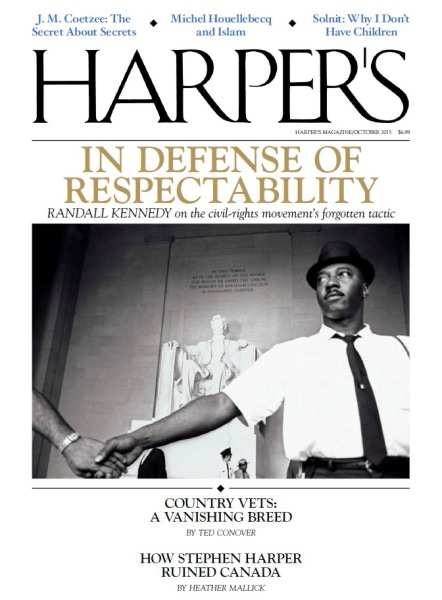To grab your copy of the October 2015 issue of Harper’s Magazine, featuring my translation of “The Bawdyhouse for Beggars,†a chapter (or subchapter) unto itself in the “nonfiction novel†Paris insolite (“unseen†or “curious†Paris), which first ran in Issue 58, the John Le Carré issue, of TLR, Fairleigh Dickinson’s litmag The Literary Review. It will also be featured in the forthcoming anthology of writing on Paris from Serving House Press, edited by TLR World Literature Editor Jessie Vail Aufiery.
Clébert’s complete book is forthcoming next spring as Paris Vagabond from New York Review Books, in a translation by Donald Nicholson-Smith.
Jean-Paul Clébert (1926-2011) is the author of more than forty works of fiction and nonfiction. He left Jesuit school at 16, to join the French Resistance, and afterward, traveled Asia. In the 1950s, he frequented two related movements—dwindling Surrealism and burgeoning Situationism—as well as reporting from Asia for Paris Match and France Soir. The 1996 Dictionnaire du surréalisme, for which he single-handedly composed every entry, is widely considered a classic, as is his first book, Paris insolite, a memoir of homeless life in Paris said to have influenced Henry Miller and the Situationist principle of the dérive. Published in 1952 with a dedication to Robert Doisneau and photographs by Patrice Molinard, it was, in the author’s own words, “not a story in the journalistic sense, but a personal investigation.†Among other prominent works are The Blockhouse (1958), his only translated novel, and 1962’s Les Tziganes, a pioneering sociological study of Gypsies also based on personal experience, translated into English by Charles Duff (Dutton, 1963). His later works were dedicated to the history, nature, and culture of Provence, where he spent his final years.
